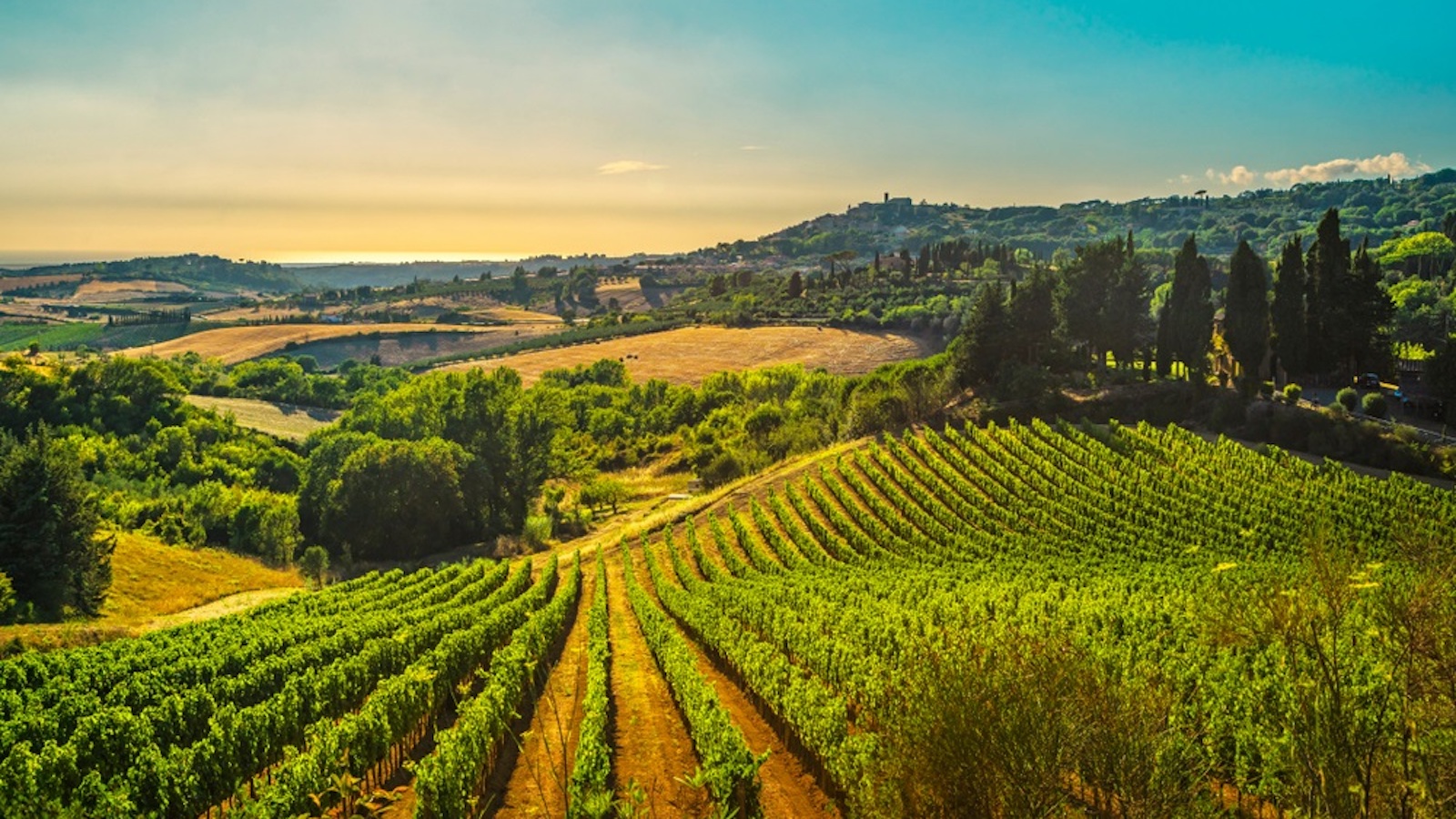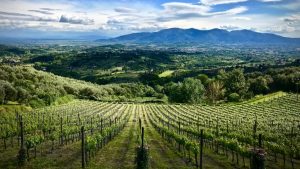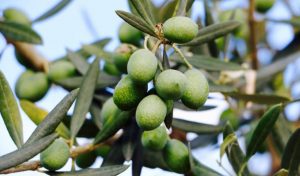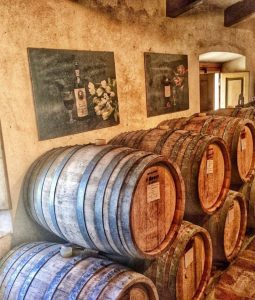
Democratic Socialism Is Nothing New—Part 3: Central Planning
Before I get on the topic of central planning as it relates to democratic socialism in Europe, I think it is important to put some focus on central planning in the United States. After all, our own government has been addicted to it almost since our founding. The simple idea that a few people in high places can pull a lever here, or move a budget there in the name of the greater good often seems great, in theory. After all, they can see the bigger picture that we plebs can hardly be expected to understand. Still, this invariably throws a wrench into the free and open markets and the most basic mechanisms of supply and demand.
Central planning is at the core of socialism, so we believe that since we think we are a “free” democratic republic, it doesn’t affect us. But when the government subsidizes one industry over another, they are choosing for us who will succeed and who will fail. When they bail out a big corporation because they are “too big to fail,” they destroy the potential of smaller companies that could rise up and provide better products, at better prices, more efficiently. Our entire tax system is designed to reward or punish based on what our central planners have deemed to be in the best interest of the nation, and it is well-hidden from most of us by design.
I could go on ad nauseam with a litany of examples, but let’s move on. Suffice it to say that those telling us capitalism is a failure are failing to delineate the difference between free market capitalism and crony capitalism. Crony capitalism is on the path of one flavor of socialism, namely fascism. Few of us will disagree that the later is a failure, but most of us don’t realize that we actually do not have the former.
No Grapes
 If you are old enough, and from California, the term “No Grapes” likely brings you to think of a massive workforce strike in the 1960s. But if you are from Italy, you may well know I am heading in an entirely different direction.
If you are old enough, and from California, the term “No Grapes” likely brings you to think of a massive workforce strike in the 1960s. But if you are from Italy, you may well know I am heading in an entirely different direction.
My father-in-law had about 50 acres of farmland in central Italy, just south of the tri-region borders of Tuscany, Umbria and Lazio. Until the 1990s it was common for just about any Italian with land to at least have a private vineyard for their own consumption. I mean, it is Italy, and we are talking about wine, right? I have fond memories of helping him make his wine with his old wine press in autumn.
After he passed away, a great deal of his land was passed to my brother-in-law. He learned that they were paying a very hefty tax on the portion of land that the vineyard was on. As he researched this, he learned that this plot of land was not in a nationally designated area for vineyards, so he had to pay a heavy tax premium in order to grow wine grapes on it. He further learned that his newly acquired land was designated a “hazelnut zone,” so if he planted hazelnuts on the land, he would not only lose the property tax penalty, but would be awarded a nice government subsidy for the effort.
But it got even better for him, because vineyards are a protected crop, and even if you are in a designated “vineyard zone,” you can only grow vines based on vineyard acreage you are certified for. In other words, even if you have 500 acres of the best grape-growing land in Italy, if you have a certificate for 5 acres, you can only grow vineyards on 5 acres of your land, period. These certificates are of finite supply, so if you want to grow an additional acre, you need wait for someone to destroy an acre of certified vineyard and purchase their certificate from them. A simple one-acre certificate can cost hundreds of thousands of dollars.
As such, my brother-in-law destroyed his father’s vineyard, sold the certificate for a hefty sum, planted hazelnuts, and was granted a sizable subsidy. All of this had nothing to do with whether or not there was a market for hazelnuts or wine. It was all a game being played by government bureaucrats in an attempt to control what was produced, where it was produced, and how it was produced.
My brother-in-law might have otherwise had the option to make an attempt at producing the best wine the world had ever seen, but the central planners made it impossible. His land could have produced terrible hazelnut crops, but that did not matter. Or perhaps he had a passion for growing apples and building his own Italian apple empire. Nope, you will grow hazelnuts, or be punished. Moreover, imagine the cost of enforcing such systems, because there are actually law enforcement people driving around or flying aircrafts to make sure you are only growing approved crops.
All of this may not seem like a big deal, but my brother-in-law was economically forced to plant hazelnuts on his land, because the government decided it was in the nation’s best interest. But the technocrats in the government didn’t anticipate that the nation of Turkey was pulling their own levers, and began flooding the market with hazelnuts. This caused the price of a hazelnut to plummet to the point that hazelnuts were no longer a profitable crop. My brother-in-law was fine, because he got his subsidies and bonuses, but it generated nothing but losses for the nation. What if he had been left to simply choose what he wanted to grow?
That Organic Crop is Often Less Organic than the Non-Organic Crop
Speaking of hazelnuts, my brother-in-law also learned that he could get his hazelnuts certified as “organic” by the government, and get better market prices for them. This required a long process of certifications, application fees, inspections, and much more. There is an entire industry created by the process of organic certification.
He would tell me stories of the hoops he would have to jump through during the process and showed me how he was growing his hazelnuts when they were not considered organic, compared to the chemicals and various products he needed to purchase from government-selected vendors in order to get the certification. He laughed in disgust as he would show me how significantly less organic his hazelnuts would now be once they are certified as organic.
But hey, the government practically forced him into the hazelnut business, set the pricing, and set all of the market conditions. So he was incentivized to grow whatever the government would pay the most for, regardless of quality or what people actually desired. A better tasting and healthier hazelnut was never part of the government plan.
The Most Unfiltered, Cold-Pressed Extra Virgin Olive Oil Cannot Be Called Unfiltered, Cold-Pressed Extra Virgin Oil
 Dear friends of mine own a small family-run olive oil mill in Umbria, Italy. Umbria olive oil is well-known as the best Italy has to offer. The mill has been in their family for centuries, and the family produced some of the best oil I have ever had with pride. I said produced. Traditionally, this world-renowned olive oil was produced by a stone mill, a mechanical press, and stored in large terracotta containers. The stone mill was operated in the winter, requiring olives to be pressed within hours of the time they were harvested.
Dear friends of mine own a small family-run olive oil mill in Umbria, Italy. Umbria olive oil is well-known as the best Italy has to offer. The mill has been in their family for centuries, and the family produced some of the best oil I have ever had with pride. I said produced. Traditionally, this world-renowned olive oil was produced by a stone mill, a mechanical press, and stored in large terracotta containers. The stone mill was operated in the winter, requiring olives to be pressed within hours of the time they were harvested.
What makes cold-pressed, extra virgin olive oil so good is the level of acidity in it. Centuries of practice has perfected this process. The olives are harvested, and sent directly to the stone mill, which crushes the olives without adding any heat. This is what makes it “cold-pressed.” The longer you wait before pressing, and the more heat the olives are exposed to create acid in the oil. It is the level of acidity that determines whether or not the oil is “extra virgin,” “virgin,” or just “olive oil.” Less acid equals more virgin. Finally, light is the enemy of olive oil. The best containers for olive oil are terracotta, which allow no light, stay cool, and create a rounded flavor that is what made their oil so special for centuries. This is the process my friends and so many other artisan producers used, until the government got involved.
The first law that came down on them was to make the storage in terracotta illegal. It was decided that this was an unsanitary way to store the oil, although there had never been a single incident of problematic olive oil from terracotta storage. It was now determined that you must store your oil in stainless steel containers, which had to be purchased from a pre-approved list of manufacturers in Germany. This was “suggested” by the European Union as a way to help subsidize industry in Germany.
The European Union pulled a lever in Italy to boost industry in Germany.
The law was so sweeping, that if an inspector found even a single terracotta container with olive oil for personal use in your kitchen, your business would be shut down. But just a few years later, a major study was conducted by an Italian university that proved that the terracotta method was actually more sanitary than stainless steel in how it kept the oil. Still, the law was never reversed and continues to be enforced to this day.
The next blow that came down was the big one. Around 2014, the government passed a law stating that any mill that continued to use the traditional stone mill could no longer label their olive oil as “cold-pressed” or “extra virgin.” Instead, in order to keep these labels, a mill needed to use an extremely expensive modern mill that actually uses more heat, squeezes lower quality oil from the olive, and produces a higher acidity content. This was specifically the difference that allowed the small artisan producers to produce higher quality product.
But none of this came without a shiny lure. Mills using the traditional press could receive a ~$300,000 subsidy to purchase a brand spanking new “modern” mill in order to comply. Of course, this subsidy came with a list of German manufacturers you could purchase this mill from. But hey, you got the cash and could keep calling your oil “cold-pressed” and “extra virgin.” In order to make this work, and to benefit the larger olive oil industry, the government also raised the acidity limits necessary to call oil “extra virgin.” Now anything less than 1% acidity could claim the name, while the standard for the traditional mill was in the neighborhood of 0.02%.
One final “feature” in these new mills was a protected counter that let the government know exactly how much oil you produced at all times. Hmmmmm.
My friends took the bait because they were forced into it. After all, how could they sell their oil without the label that shows it is high quality? Sadly, in the years to come, their sales did suffer, as the quality of their product was no longer significantly superior to the large corporate producers. But the central planners surely knew better, of course.
The small artisan producers lost their edge, the consumer lost the ability to get higher quality, while major corporations won. This was enacted by the democratic socialists that say they are fighting the evil corporations for the rights of the little guys.
Oh, Those Tuscan Sunflowers!
 What I will now describe is partially from having lived so long in Italy, but also because I run a tour company in the country, and see all of the behind-the-scenes things most don’t. One of the greatest attractions is every June and July as we drive the country roads of Tuscany, and guests marvel at the fields of sunflowers in the rolling hills. It is truly beautiful! There is never a day that we don’t need to pull over for the photo op.
What I will now describe is partially from having lived so long in Italy, but also because I run a tour company in the country, and see all of the behind-the-scenes things most don’t. One of the greatest attractions is every June and July as we drive the country roads of Tuscany, and guests marvel at the fields of sunflowers in the rolling hills. It is truly beautiful! There is never a day that we don’t need to pull over for the photo op.
Invariably, some ask what they grow the sunflowers for. The official line is that they are mostly for sunflower oil, but we have this nasty habit of being honest. The reality is that sunflowers are a transition crop that is planted between major crops. The government pays a handsome subsidy to farmers to plant these sunflowers in the hopes of boosting the industry, but as with pretty much all planning done by technocrats sitting in plush offices that have never seen a day of work in the sun, the plan was never thought through.
The farmers are paid a nice subsidy to plant the sunflowers, and they make for beautiful scenery indeed. But the cost of actually harvesting those sunflowers and processing them is higher than what the market will support. In other words, to maximize their income, farmers are generally better off growing the sunflowers, letting them dry up, mowing them down, and burning them.
Yes, you read that right. You get paid by the government to grow the sunflowers whether you harvest them or not.
In other words, most of those sunflowers you see are simply the result of a farmer growing something the government pays him to grow, rather than a crop that people actually want and need. This sucks the air out of the economy. If left to grow something there was a demand for, the farmer could grow something that created enough profit to feed their family and help the overall economy. But of course, the government planners know better.
Destroy Your Garden and Remove Your Bidet
So far, all I have described has been how the central planners have manipulated agriculture, and if you were paying attention, you may have noticed the sleight of hand that gave an unnatural boost to German manufacturing via nonsensical laws. But it hits every citizen right in their own homes.
We have a lovely home in Italy, and on our property we have a small garden. We plant tomatoes, onions, zucchini, and several other vegetables. It is all for our own personal consumption. This is, without question, a national pastime. It is extremely common for Italians with any yard to plant a personal garden. It’s just what you do. Of course, from a technocrat’s perspective, such activities are an abject assault on the agriculture lobby. We cannot have that, so a bill was introduced that would make having your own personal vegetable garden, no matter how small, punishable by the force of law.
Another staple of Italian culture is the bidet. You will never find a bathroom without one. It is such a big deal that when my Italian friends and family visit us in the states, they think of us as barbaric for not having them. So what’s the deal, you may ask. Well, the bidet is used to clean yourself in the nether region after you have “done your business.” In fact, Italians don’t typically shower as often as most because they wash most of their bodies significantly more often than the rest of us. Get it? Think it through if you need. But up in the walnut-laden offices of our friendly government officials, it was decided that with climate change and all, the bidet was an unnecessary waste of water. Again, think this one through using your brain. If you can keep yourself cleaner, more often, by using a bidet… well, you shower less and save water. Suffice it to say that this never passed, but it should illustrate how absurd that the central planners get down to even the most personal details of your life.
What’s in YOUR wine?
 So up to now I have given some personal examples of how central planning in Italy upsets the balance for Italians. But all of this creates a domino effect that reaches across the world. One simple reality of humans is that the more you put restrictive rules on people, the more they will work to find ways around those rules. So I am going to bring this back to wine. More specifically, if you have a bottle of Italian wine, go grab it and pour yourself a glass while you read this.
So up to now I have given some personal examples of how central planning in Italy upsets the balance for Italians. But all of this creates a domino effect that reaches across the world. One simple reality of humans is that the more you put restrictive rules on people, the more they will work to find ways around those rules. So I am going to bring this back to wine. More specifically, if you have a bottle of Italian wine, go grab it and pour yourself a glass while you read this.
That wine you are drinking is mass-produced. Imagine how many bottles that winery had to make in order to provide global distribution. Earlier I explained that vineyards needed a certificate for every acre of vineyard they grow. That does not mean they necessarily need a certificate for every bottle of wine they sell. It turns out that some regions of Italy can demand a much higher price for their wine than others. For example, you may be drinking a Tuscan wine, and that certainly conveys value. After all, wine from Tuscany is some of the best, right? Now if I have a winery in Tuscany, I may only be certified to grow 5 acres of vineyards. An acre of vineyards will typically produce about 4,000 top 5,000 bottles of wine, so I can get maybe 25,000 bottles with my 5 acres. Remember, I may have another 200 acres of land that I am not allowed to plant grapes on!
If I am successful in marketing my wine, I may get an order for 100,000 bottles from Russia. Another 200,000 from North America, 100,000 from Asia, and so on. Do I turn these orders down because my vineyard only produces 25,000 bottles? Of course not! I want my family to have a good life, so I find a loophole.
There are regions of Italy that grow grapes, but cannot market at nearly the value of a region like Tuscany. As a result, an entire industry has been developed in which many Tuscan wineries purchase truckloads of concentrate from these areas, then produce their wine “in Tuscany.” Is it dishonest? Yep. But that dishonesty was forced by absurd regulations implemented by central planners.
This affects you because when you buy that $300 bottle of wine with your dinner, it is entirely possible that what is inside is often the same thing as the $10 wine at the discount store. Of course, when these wineries send samples to wine reviewers, they are sending their actual production, or when you buy direct, you get the real thing. But this is something that actually happens every year. I won’t name names here, but I have direct knowledge of this being practiced by wineries that are very well-known.
Do you blame the winemaker? I don’t, because he or she is effectively forced into this practice by the authoritarian policies handed down through democratic socialism.
If they would only let the free market flourish, people would not be pressured into resorting to such tactics in order to make a living.
Ratcheting It Up in The United States
As I described at the beginning of this article, the United States also practices central planning as an art form. But as we move toward the future, we need to ask ourselves if we want more of this or less of it? The answers people banging the democratic socialism drum bring us are that we don’t have enough of this. We need to centrally plan more and more for the “greater good.” In Europe this has only served to empower more bureaucrats while entrenching more giant corporate interests, but always in the name of helping the needy. Invariably, the needy have become needier, and the powerful have become more powerful. Those with means find ways not only to game the system when socialist practices are implemented, but have enough influence to shape the system to their own benefit, every single time. In the end, it is the people that believed in the empty promises that lose.
In my next article for this series, I will be diving into immigration, with first-hand examples describing how I have watched it decimate Italian culture, lower the standard of living, and run people out of their homes. I will once again start with myself, and the day an immigration officer told me that as an American, even though I was married to an Italian and ran a business in the country, I did not qualify for a visa… but if I had been a poor Romanian, he could issue me a visa, welfare, and even housing that very day.
Free the People publishes opinion-based articles from contributing writers. The opinions and ideas expressed do not always reflect the opinions and ideas that Free the People endorses. We believe in free speech, and in providing a platform for open dialogue. Feel free to leave a comment.



